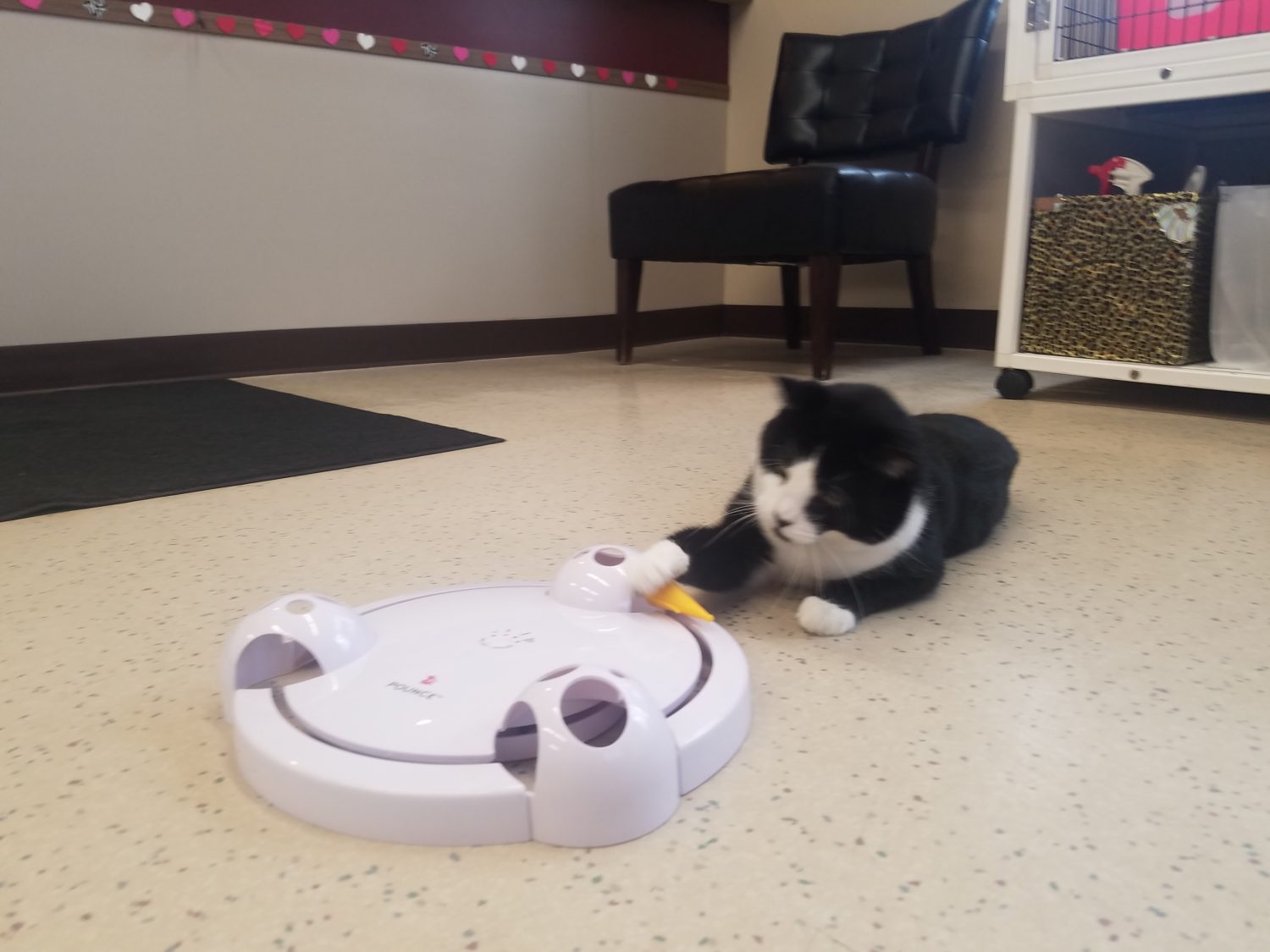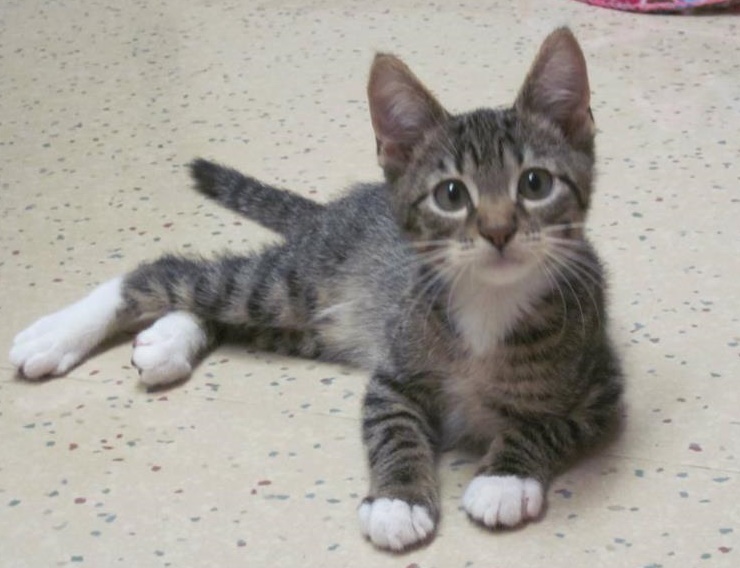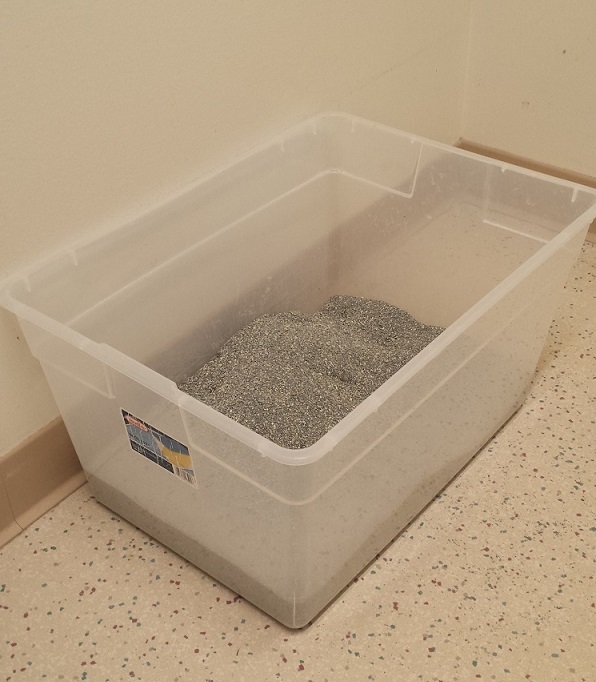Posts Tagged: feline health
Spring Forward With Healthy Pets!

Along with an annual exam, wellness bloodwork provides insight to what is going on inside your pet.
Testing can reveal:
- Infection
- Liver disease
- Renal/kidney disease
- Diabetes
- Dehydration
- Thyroid abnormalities
Dogs and cats over the age of 8 have the greatest benefits to receiving this bloodwork. Many times pets appear normal upon physical examination, and their abnormalities on the inside go undetected without bloodwork.
The process of disease development in pets can be slow. When an organ system starts to fail, that organ will compensate to bring function back to normal. Overtime, this compensation mechanism will fail as well, and the pet will become ill. Once the pet is in organ failure, treatment options are limited and prognosis is poor.
The good news is if caught early, three out of four pets have abnormalities that can be treated! Bloodwork is collected in the clinic and sent out to our lab. Results come back in 1-2 business days. During the month of April we are offering $15 off wellness bloodwork for our patients.
Three Weird Cat Behaviors Explained
Our feline friends are wonderful companions, but they can also be curious critters when it comes to some of their behaviors. Here are three weird cat behaviors explained.
My Cat “Head Butts” Me.
 Does your kitty rub his face on you? This is also known as “head butting” Don’t worry, this is a good thing! This is his way of saying “hello, you are my people and I trust you”.
Does your kitty rub his face on you? This is also known as “head butting” Don’t worry, this is a good thing! This is his way of saying “hello, you are my people and I trust you”.
Cats have scent markers in their cheeks and they are rubbing their pheromones on you when they “head butt” you. This is just one of the many ways cats show their love for their humans.
My Cat Loves to Sit in Small Spaces.
 If you’ve visited our office, you have probably met our charismatic clinic cat “Wesley”. He is notorious for curling up in the recycle basket behind the front counter that is approximately one size too small to fit (what we would consider) Wesley comfortably. However, with all his soft, plush beds scattered throughout the clinic, he still prefers to curl up in the basket. So why does he prefer the small space?
If you’ve visited our office, you have probably met our charismatic clinic cat “Wesley”. He is notorious for curling up in the recycle basket behind the front counter that is approximately one size too small to fit (what we would consider) Wesley comfortably. However, with all his soft, plush beds scattered throughout the clinic, he still prefers to curl up in the basket. So why does he prefer the small space?
Small spaces actually help cats feel more safe and secure. This stems to when cats are in the wild, they aren’t going to take a nap in a big open space, are they? No, they are going to hide in an enclosed spot where they are hidden from any potential predators. So, when they curl up in a box or hide in a small space, it means they are finding themselves a safe, secure spot.
My Cat Sleeps All Day and Keeps Me Up All Night.

There’s nothing worse than when you are laying in bed at night just about to drift off to sleep and your cat decides to tear through the house like he’s chasing a ghost. Cats need exercise and stimulation throughout the day to ensure a restful sleep at night. Consider a cat food puzzle toy to make eating more of a game or challenge. Interactive toys, like a laser pointer or a Pounce toy are great ways to stimulate your cats body and mind. It’s easy to think a cat is a “self-sufficient” pet, but they want companionship from their human friends just as much as we do!
The Scoop on Litter Box Care
 Proper litter box care is an essential part of proper care for your feline friend. If your cat is eliminating outside of the litter box, this means there may have an underlying medical condition and you should take your feline to your veterinarian. If a medical condition is ruled out, there are many things you can do at home to make sure you have the right set up to ensure your cat will use the litter box.
Proper litter box care is an essential part of proper care for your feline friend. If your cat is eliminating outside of the litter box, this means there may have an underlying medical condition and you should take your feline to your veterinarian. If a medical condition is ruled out, there are many things you can do at home to make sure you have the right set up to ensure your cat will use the litter box.
How many litter boxes should I have?
The ideal number of litter boxes is one per cat, plus one. So if you have 2 cats, you should have three litter boxes. If you have 4 cats, you should have five litter boxes, and so on.
Where should I place my litter boxes?
Litter boxes should be placed in at least two different locations. If you have multiple levels in your home, consider placing a litter box on each level of the home. Locations should be private and have easy access. Avoid noisy appliances and doors that are opened frequently. Boxes should not be placed next to one another, as cats will only see this as one giant litter box.
What type of litter should I use?
Most cats prefer a fine-grained, unscented litter (e.g., clumping litter). Many cats prefer a litter depth of approximately 1.5 inches. Preference may vary by cat.
How often should I clean the litter box?
Boxes should be scooped 1-2 times daily. Litter should be completely changed once a week or more often if a multi-cat household. Wash litter box with warm, soapy water and dry well before adding new litter.

What kind of litter box should I buy?
Cats prefer litter boxes that are at least 1.5 times the length of their bodies. Commercial litter boxes are too small for larger cats! Sweater storage boxes, cement mixing tubs and small dog litter pans all make excellent cat litter boxes.
Are my cat’s potty habits normal?
The average cat urinates twice daily (+/- 2) and defecates once daily. Some will sniff and cover their eliminations; others don’t. Both are considered normal behavior.
Eliminating outside the box often signals an underlying medical condition. The earlier the problem is corrected, the better the chance for the cat to return to their litter box.
